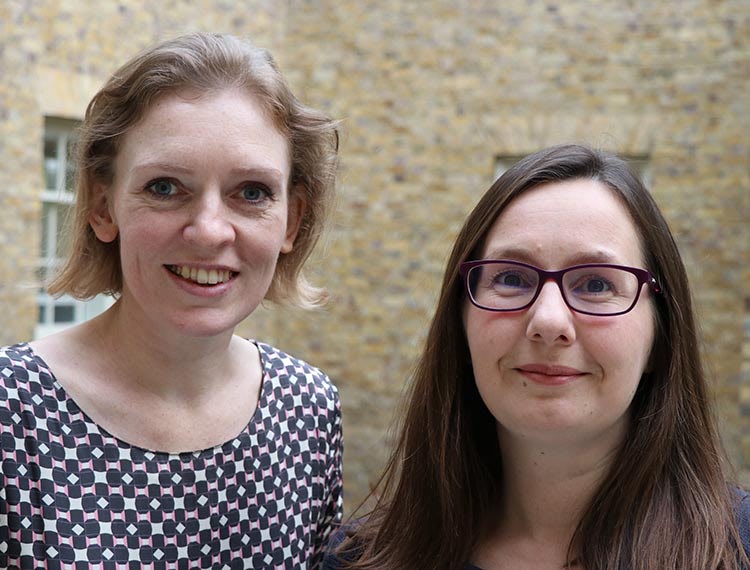World class training for a green-led national recovery

In the year that the UK prepares to host the United Nations’ climate negotiations, COP 26, the Government is committed to jump-starting a green industrial revolution at home and abroad.
It mapped out an ambitious ‘Ten Point Plan’ for achieving this, which the independent Green Jobs Taskforce has now built on through its report published today.
The drive towards two million good quality green jobs by 2030, in support of the nation achieving net zero carbon emissions, will require a huge amount of world class training.
Employers understand the different skills needs of their industries best.
They also know what the people doing the training must learn to have successful careers. Our task at the Institute is to ensure the right green training offers and options exist across the system to enable employers and learners to take them up when the time is right.
The UK has strong base of green jobs to build upon – we already have over 410,000 jobs in low carbon businesses and their supply chains across the country. There will be huge increases in demand for new green skills. For example, the Ten Point Plan’s commitment to produce 40GW of offshore wind power by 2030 will support around 70,000 jobs. Apprenticeships can help deliver the skilled workforce we need to deliver that power – we have a Maintenance Operations and Engineering Technician apprenticeship offering training to install, assemble and dismantle wind turbines.
We will need employers’ full support as the technical education system shifts to provide more green training opportunities. COP President-Designate, Alok Sharma, has called on employers to sign up for the Race to Zero campaign and rethink their whole operations in pursuit of net zero emissions. We would put a focus on skills in the technical education system firmly within that.
We are delighted to have joined the Institute.
We have spent most of our careers working on the climate change and energy policy, with businesses, charities, and citizens to promote a smarter electricity system and greener homes, buildings and roads. In these roles, we both saw how important skills training is for the system-wide change that is needed if we are to achieve net zero as a nation.
The Institute is focused on practical changes to occupational standards, and has been working closely with the Green Jobs Taskforce set up by the Department for Business, Energy and Industrial Strategy and the Department for Education. We have been mapping how apprenticeships can support green jobs with our new Green Apprenticeships Advisory Panel (GAAP).
The panel’s 14 members bring extensive experience across priority sectors including energy, the shift to zero-emission vehicles, greener buildings, protecting our natural environment, green finance and innovation. They are supported by a wider green advisory community who provide expert views on particular occupations when needed.
Their initial focus has been on the energy sector and battery manufacture.
Recommendations for each priority sector will include endorsing existing apprenticeships where they are already green, identifying where apprenticeships could be adapted for future green workforce requirements, and identifying where completely new green apprenticeships are needed. This builds on our new sustainability framework that asks trailblazers to consider, no matter what sector they are in, how best to contribute to climate change goals.
The Institute’s work in support of the green agenda will be applied across our expanding technical education remit. We will work with employers to assess how the current suite of T Levels and the new Higher Technical qualifications can support the drive to net zero.
Practical changes can be made to support green skills.
National Express is moving to an electric and hydrogen fleet from 2030 and Coventry is the leading city for this. Early views indicate that the existing Bus and Coach Engineering Technician apprenticeship could support the maintenance of this green fleet, if it is updated to accommodate the new technologies.
The Institute and our panel will be guided throughout all our work by the evolving voices of employers to understand what works for the economy and our workforce. We will ensure the right systems are in place for us to listen and respond fast and flexibly. It will be important to consult with training providers and end point assessment organisations to ensure delivery is both viable and high quality.
This must all work for learners.
We will leverage our community of employers, apprenticeship networks, and other supporters to ensure the demand is there for training across the green economy.
We have all seen the passion and power of young people on climate change. We must make sure the system is offering them opportunities to make those ambitions a reality.
Skills are the foundation for our economy, they are a national asset, a draw for investment and our view is that by demonstrating how we have built green into the foundations of our approach to technical education we will support the country’s ability to make a successful transition.
Rachel Cooper and Beth Chaudhary, new job-sharing strategy directors for the Institute for Apprenticeships and Technical Education (the Institute) and former strategy directors for the Cabinet Office.











Responses